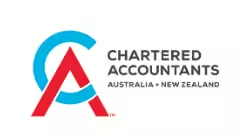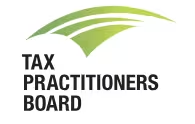Main residence exemption myths and misconceptions

When it comes to taxation, the family home is sacred. It is often the largest asset a taxpayer will own, and we all know that the family home is exempt from capital gains tax (CGT).
This perception has caused many governments to remain gun shy about making changes that would lessen the generous concession available to homeowners; the main residence exemption (MRE). The MRE is the Commonwealth’s largest tax expenditure item, according to the latest annual Tax expenditures statement 2017, which estimates the revenue foregone in 2017–18 due to the MRE at $74 billion.
The surge in the residential property market, metropolitan and regionally, continues to attract buyers and sellers in droves. While property used wholly for investment purposes falls squarely within the CGT net, the tax treatment of property sales involving the family home is more complex and often blurred by myths and misconceptions. Below are some of the common ones.
How long must I live in a property for before it becomes my main residence?
Ask this question at the pub or a barbecue, and you’ll find answers ranging from three months, six months or 12 months to ‘I’m not sure’. The answer is simple: it is based on fact and there is no specified duration. The factors that are relevant to determining whether a dwelling is your main residence (MR) — previously listed in withdrawn Taxation Determination TD 51 — are set out in ATO web guidance. These are:
- How long you live there — importantly, there is no minimum time a person must live in a dwelling before it is considered to be their MR;
- Where your family lives;
- Whether you have moved your personal belongings into the dwelling;
- The address to which your mail is delivered (an interesting factor given the increasing use of electronic mail);
- Your address on the electoral roll;
- Connection of services and utilities (e.g. telephone/internet, gas, electricity, water);
- Your intention in occupying the dwelling (but mere intention is not enough).
Clearing up the 6-year absence rule
The above factors are relevant also to the 6-year absence rule in s 118-145 of the Income Tax Assessment Act 1997 (ITAA 1997). It seems everyone has heard of the 6-year absence rule, but many still get it wrong.
Do I have to move back into the property to reset the 6-year period?’
Yes. A dwelling that was your home may be rented for multiple periods of up to 6 years, and can be sold tax-free, but these multiple periods must be punctuated by periods in which the property again becomes your MR.‘How long do I have to move back into a property before it is deemed to be my main residence?’
As discussed above, there is no set period; it is a question of fact whether the property is your MR.
‘Do I have to move back into the property before selling it to be eligible for the MRE?’
No. You do not have to move back into a property and treat it as your MR before you sell it to access the MRE. A dwelling that was previously your home and is rented for no more than 6 years will be tax-free (unless you are a foreign resident, and there are limited exceptions to this broad prohibition). If the property was instead rented for more than 6 years, the taxable gain is pro-rated to exempt the initial 6-year period.
If I rent my home for, say 2 years, it’s always tax-free, isn’t it?’
No. A dwelling that is treated as your MR for 8 years then rented for 2 years will be exempt from CGT. However, a dwelling that is rented for the first 2 years then treated as your MR for the next 8 years will be subject to CGT on a pro-rated basis as the 6-year absence rule is not available in this case.
I rent my home out through Airbnb for a few weeks during an annual festival. It’s rented for less than 6 years at a time, so my home is still tax-free when I sell it, isn’t it?’
No. The 6-year absence rule is available only if the taxpayer ceases to treat the dwelling as their MR. In this case, the taxpayer hasn’t ceased to treat it as their MR; they are using their home to produce income, the utilities remain in their name, their belongings remain in the property, and they remain on the electoral roll. So the rent is assessable (there is no minimum threshold below which it is not assessable) and the property will be subject to CGT upon sale on a pro-rated basis.
‘I don’t have to reset the cost base of my property to its market value when I first rent it, do I?’
Yes. Where the property is first rented on or after 20 August 1996 and would have been tax-free had it been sold just before that first use, the cost base of the property is reset to its market value under s 118-192. This is not optional, does not include stamp duty on purchase and will disadvantage those who first rent their homes in a cooler market than when it was purchased (not the case at the moment).
Holding two homes at the same time
‘Can I have two properties as my main residence at the same time?’
There is a limited circumstance in which two properties can be treated as a taxpayer’s MR at the same time.
The rule in s 118-140 allows you an overlap period of up to 6 months to access the MRE on two properties at the same time, counting back from when your ownership interest in your existing home ends (date of settlement). This rule acknowledges that, in the real world, we rarely neatly buy and sell homes on the same date.
Importantly, this is not 6 months from buying the new home; it’s up to 6 months back from selling the old one. So if the new home was bought just 2 months before selling the old one, the overlap period is only 2 months — you don’t automatically get a 6-month overlap. If it was bought 8 months before selling the old home, and the MRE is applied to the old one, you will need to remember to account for the CGT on the first 2 months of owning the new home when you come to sell it in 20 years’ time.
‘What about my holiday home that isn’t rented?’
Even though it’s not rented, you still can’t apply the MRE to two properties at the same time. You need to determine which one is your MR when you sell one; the other will be subject to CGT. And you can’t just choose to exempt the holiday home because it has a larger unrealised gain. It is a question of fact whether the holiday house is, or can be treated as, your MR, having regard to the factors listed above.
Be sure to keep good records of your holding costs where you bought the property after 20 August 1991, so costs such as interest on the mortgage, insurance, council rates, repairs and maintenance and land tax can be included in the third element of cost base to reduce your taxable capital gain.
That pesky label on the tax return
Label 18 of the individual income tax return requires taxpayers to disclose if a CGT event has happened to them during the year. Many don’t realise that the MRE is an exemption from CGT, not an exemption from reporting it. So even if the sale of your home is tax-free, you are still required to indicate ‘Yes’, a CGT event has happened.
Getting the timing right
‘Do I pay CGT when I sell the property?’
Unlike stamp duty that is payable by the purchaser on settlement, CGT is not payable on settlement, and it is not a separate tax. The gain is included in the vendor’s taxable income and taxed at their marginal tax rate. It is payable on lodgment of the tax return for the income year in which the contact was entered into, not the year of settlement.
This can sometimes be confusing for taxpayers because the MR days (and any pro-rating of days based on taxable use) are calculated based on the ownership period, which runs from the date of settlement on purchase to the date of settlement on sale.
‘But I intended to live in it …’
‘Can I use the 4-year construction rule where I bought land with the intention of building a home on it, but it was sold in advance before I built/moved into it?’
You may have had good intentions, but the 4-year construction rule in s 118-150, which exempts the capital gain by allowing you to treat vacant land or land under construction as your MR, is available only if:
- the land is acquired, the dwelling is constructed and you begin to live in it within 4 years;
- you live in the dwelling for at least 3 months; and
- you are not treating another dwelling as your MR during this period.
A mere intention to build a home on the land and move into it is not sufficient. If you decide to ‘cash in your chips’ and sell the land prior to construction with an approved development application, the MRE is not available.
‘Can we have one each?’
These days, it is not uncommon for a taxpayer and their spouse/partner to each wholly own a property. Section 118-170 is clear in this situation: you get one whole property eligible for the MRE between you. This means that:
(a) you can claim the MRE wholly on your property, exposing theirs to CGT;
(b) they can claim the MRE wholly on their property, exposing yours to CGT; or
(c) you can both claim the MRE on the different dwellings — but the MRE is available only for half the period, effectively reducing the exemption for each of you by 50%.
‘Can I put the CGT into my wife’s tax return because she doesn’t earn as much?’
No. The capital gain, and any rental income, must be assessed to the taxpayer(s) who has the ownership interest in the property. You cannot access your spouse’s or partner’s lower marginal tax rate if they do not hold an ownership interest in the property; and if they do, then only to the extent of that interest.
Other issues
The list of MRE issues is endless, and brevity prevents me from considering any further issues in detail, but the following warrant a passing mention:
- ‘Can I choose not to disregard a capital loss on the sale of my home?’ (unlikely in this environment, but the answer is no).
- Don’t forget about the need to obtain a clearance certificate to avoid withholding by the purchaser at 12.5% under the Foreign resident capital gains withholding regime — yes, these rules also apply to Australian resident taxpayers where your home is sold for $750,000 or more.
- Applying the MRE to chains of deceased estates is a particularly complex area and one which necessitates seeking professional tax advice. The two-year rule in s 118-195, and the availability of a partial or full exemption, depend on a range of factors, including the date of death, date of acquisition and use of the dwelling.
- Misconceptions with the ‘up to 2-hectares’ adjacent land rule.
- The treatment of foreign residents, and the life events test. These rules are particularly draconian for Australian expatriates, or those Australian citizens who have been stranded offshore unexpectedly due to COVID-19.
Issues for practitioners
Of concern as we emerge from extended COVID-19 lockdowns in New South Wales and Victoria is the propensity for misinformation to be widely and benevolently spread via the ‘Friday night pub’ or ‘Saturday barbecue’ syndrome. Earnest advice is shared, often based on misconstrued hearsay, leading to the Monday morning telephone call from a client where you inevitably confirm that their proposed transaction is in fact not entirely free from tax.
There can be considerable pressure on practitioners to provide their clients with the answer they want to hear or be pressured into certain results or outcomes. This is a complex area, and a quick question does not always mean a quick or simple answer. It is important to know the law and get the facts straight (particularly timelines and cost base information), so you can combat the hearsayers and ensure your clients don’t get it wrong.
Given the information and digital capability for data-matching that is now available to the ATO, and the current high property prices as people cash in their homes or make the ‘sea- or tree-change due to personal COVID-19 recalibrations’, I would expect the ATO to take an increasing interest in this area.
Robyn Jacobson, The Tax Institute
28 October 2021
https://www.accountantsdaily.com.au/





